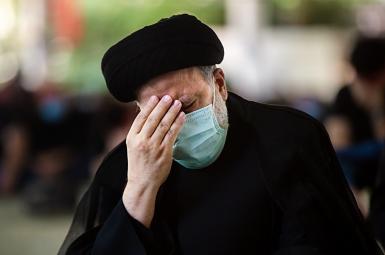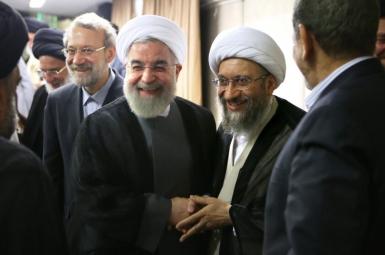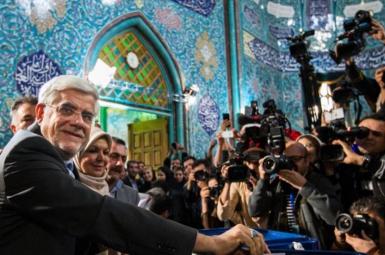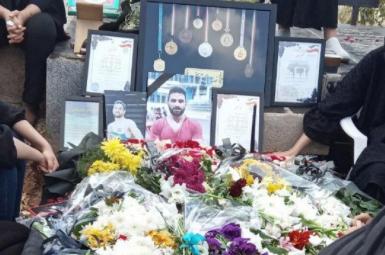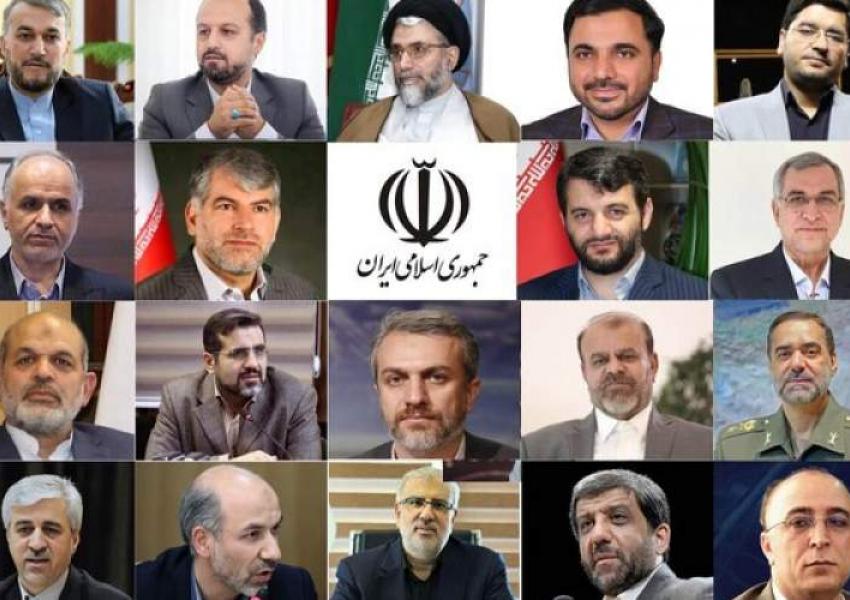
Iran's New Government Reads Like A List Of Sanctioned Persons
On Wednesday, Iran’s new President Ebrahim Raisi presented a list of his cabinet nominations to Iran’s parliament for its confirmation. While foreign policy decision-making is driven by Iran’s Supreme Leader Ayatollah Ali Khamenei and the Islamic Revolutionary Guard Corps (IRGC) exerts a great deal of control, the members of the Supreme National Security Council (SNSC) play a role in building consensus in the Iranian system. This is where the presidency can put a thumb on the scale—albeit in a limited fashion—with ministerial nominations.
The president serves as chairman of the SNSC, and traditionally those members from the government include the ministers of foreign affairs, intelligence, and interior, with other officials participating depending on the topic. Other members of course include those whose positions are directly appointed by the Supreme Leader. In practice, Iran’s Supreme Leader has also had veto power over the most sensitive ministerships—particularly the aforementioned—thus Raisi wouldn’t be submitting these nominations to the parliament if he hadn’t received approval from the Office of the Supreme Leader. Under the current administration, the president, first vice president, presidential chief of staff, and ministers-designate for defense, interior, roads and urban developments, tourism, and oil are all sanctioned individuals.
Below are brief profiles of the top cabinet posts in the new Raisi administration.
Foreign Minister-designate Hossein Amir-Abdollahian
Born in 1964 and educated at the Iranian Foreign Ministry’s College of International Relations and the University of Tehran, Abdollahian is a career diplomat. He has served in a range of positions at the Foreign Ministry, including Head of the Special Department for Iraq; Iran’s ambassador to Bahrain; director-general for the Persian Gulf and the Middle East; deputy foreign minister for Arab and African Affairs; and most recently special advisor to the speaker of parliament on international affairs. His professional focus has been on Iran’s neighborhood—particularly Iraq—and he has strong ties to the IRGC. In fact, he wouldn’t have received his ambassadorial assignment in Bahrain if the IRGC hadn’t approved given its significant oversight over regional policy.
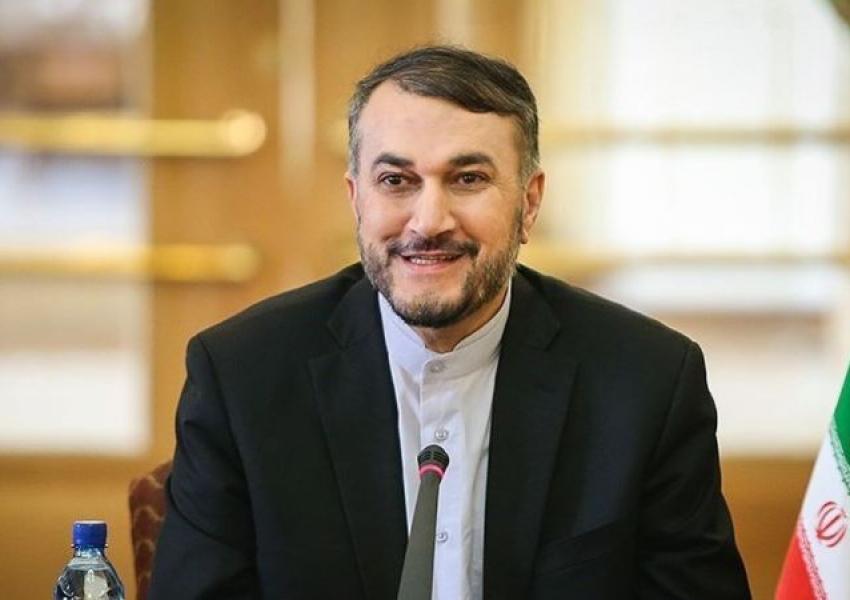
Abdollahian has been a fixture in hardline and more pragmatic administrations alike—he was able to retain his post as a deputy foreign minister in both the Ahmadinejad and Rouhani administrations. However, after reported clashes with Rouhani’s foreign minister, Javad Zarif, he later decamped to parliament. While there, Abdollahian was able to retain his post as special advisor to the speaker of parliament under two very different speakers—Ali Larijani and Mohammad Bagher Ghalibaf. Whereas Larijani ran interference for Rouhani over the nuclear deal, Ghalibaf emerged as a thorn in the side of Rouhani during his second term as talks to revive the nuclear deal resumed during the Biden administration. In addition to his primary positions, Abdollahian was secretary-general of the International Conference in Support of the Palestinian Intifada as well as advisor to the Secretary-General of the AhlulBayt World Assembly on Middle East affairs. Abdollahian is no stranger to Western diplomats, but the bulk of his experience centers on regional issues, and this will likely be his focus as foreign minister.
Intelligence Minister-designate Esmail Khatib
Khatib’s ascendance at the Intelligence Ministry represents the emerging revolving door among Raisi’s presidency, the Office of the Supreme Leader, and the judiciary. Khatib was a student of leading ayatollahs, particularly Fazel Lankarani and Makarem Shirazi. Iranian media indicates he served as a member of the IRGC’s intelligence unit since 1980. This is an important credential as traditionally the Intelligence Ministry and the IRGC’s Intelligence Organization have competed. This could thus have implications for intra-intelligence community relations. Khatib also served in capacities in the Office of the Supreme Leader, as the director of the Protection and Information Center of the judiciary, and as head of Astan Quds Razavi’s Security Department. Thus, Raisi is once again employing his considerable judicial and foundational network in his new administration—with Khatib overlapping in experience with Raisi not only in the judiciary but also at Astan Quds Razavi.
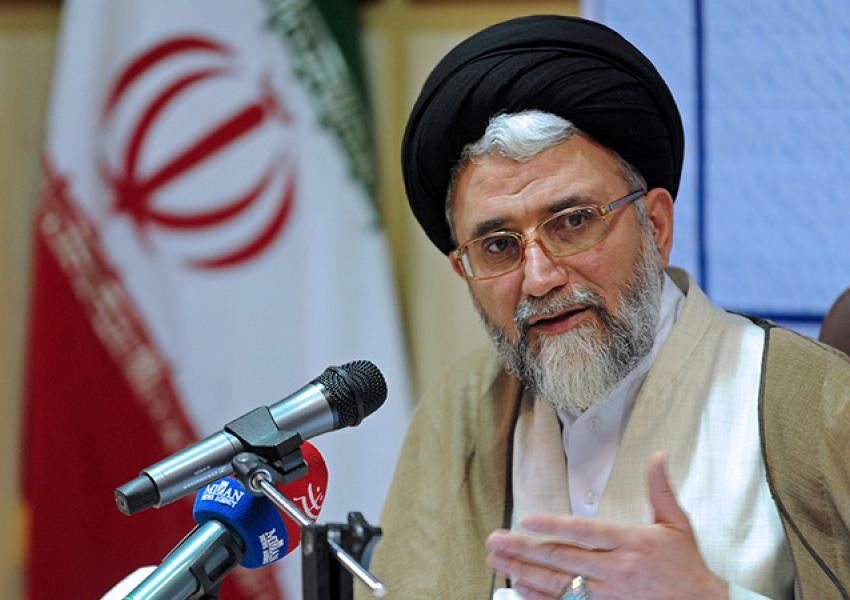
Khatib’s career pattern is broadly consistent with his predecessors at the Intelligence Ministry—particularly service across the Iranian judiciary and intelligence communities. For example, Ghorbanali Dorri-Najafabadi and Gholam-Hossein Mohseni-Ejei served as intelligence minister before taking up senior posts in the judiciary. Khatib’s role in the Office of the Supreme Leader will also provide him with stature. His predecessor Mahmoud Alavi also served as Khamenei’s representative to Iran’s Army and head of its Ideological and Political Organization, but Khatib brings more heavyweight security credentials.
Interior Minister-designate Ahmad Vahidi
Born in 1958 in Shiraz, Vahidi has spent his career in the IRGC and Ministry of Defense and Armed Forces Logistics (MODAFL). He previously served as Qassem Soleimani’s predecessor as commander of the IRGC’s Quds Force. While in the position, massive terrorist operations were mounted, including the bombing of the Argentine Israelite Mutual Association in 1994, for which INTERPOL issued a Red Notice for him in 2007. Vahidi was a lower-profile Quds Force commander than Soleimani, who developed a kind of cult of personality before his death. After his service there, Vahidi emerged as a deputy defense minister and was later tapped by Mahmoud Ahmadinejad to serve as defense minister during the second term of his presidency. During Hassan Rouhani’s tenure as president, Vahidi spent his time as a member of the Expediency Council; director of the Center for Strategic Defense Studies; president of the Supreme National Defense University; and served as a member of the Strategic Council on Foreign Relations. In contrast to the experience of his successor as defense minister—Hossein Dehghan—Vahidi didn’t receive an appointment to serve as an advisor to Iran’s Supreme Leader after his defense ministership. In the past, Vahidi was sanctioned by the European Union and the United States—although, under the nuclear deal, some of his designations are scheduled to be removed by 2023.
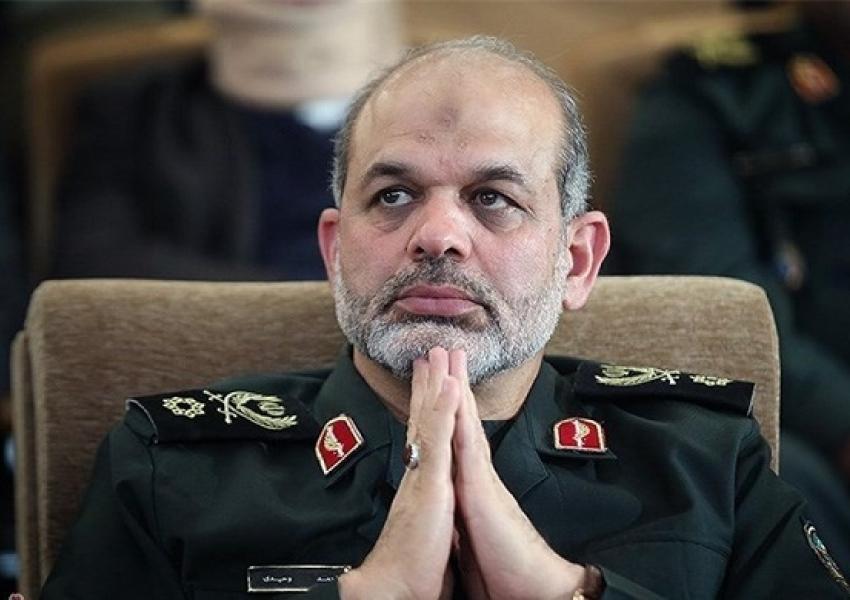
Vahidi is not the first former defense minister to assume the interior ministership. In 2009, Ahmadinejad named Mostafa Mohammad-Najjar as interior minister after he served as defense minister and had a career in the IRGC. As defense minister, Vahidi didn’t formally serve as a standing member of the SNSC, but as interior minister, he will do so. Vahidi’s predecessor as interior minister, Abdolreza Rahmani Fazli, served in the position for eight years and was sanctioned by the United States in 2020. Like Rahmani Fazli, it is likely Vahidi will chair Iran’s National Domestic Security Council (NDSC) and oversee internal security issues. Given the potential of continued unrest, having someone like Vahidi with his IRGC pedigree is a signal that the regime is eying protests in the years ahead.
Defense Minister-designate Brigadier General Mohammad Reza Ashtiani
Ashtiani comes to MODAFL after being named by Iran’s Supreme Leader as deputy chief of staff of Iran’s Armed Forces in July 2019. Ashtiani previously served as deputy commander of the Army’s Ground Forces and deputy commander-in-chief of the Army before being promoted to the General Staff of the Armed Forces. Thus, his experience provides him with a broader view of Iran’s two militaries—both the regular Army and the IRGC.
Ashtiani spent the bulk of his career in Iran’s regular Army—which will make him the second consecutive defense minister to hail from the regular Army since 1989, after his predecessor Amir Hatami. Ashtiani is also not the first onetime deputy chief of staff of Iran’s Armed Forces to become defense minister. Mohammad Forouzandeh transitioned from a deputyship role to the helm of MODAFL in 1993 during the administration of Akbar Hashemi Rafsanjani.
As defense minister, Ashtiani will mostly focus on research and development, procurement, and personnel support for Iran’s two militaries, but will not serve in the military chain of command. It will be important to see who serves as Ashtiani’s deputies. As was the case under Hatami, it is likely that IRGC officers will find roles in these slots. The United States sanctioned Ashtiani under Executive Order 13876 in January 2020.
Oil Minister-designate Javad Owji
Owji previously served as a deputy oil minister, and as managing director of the National Iranian Gas Company (NIGC) and the Iran Gas Development Engineering Company. As Reuters notes, he’s also served in managerial positions at subsidiaries of the Execution of Imam Khomeini’s Order (Setad), including at Mofid Economics Group and Petro Mofid Development Holding.
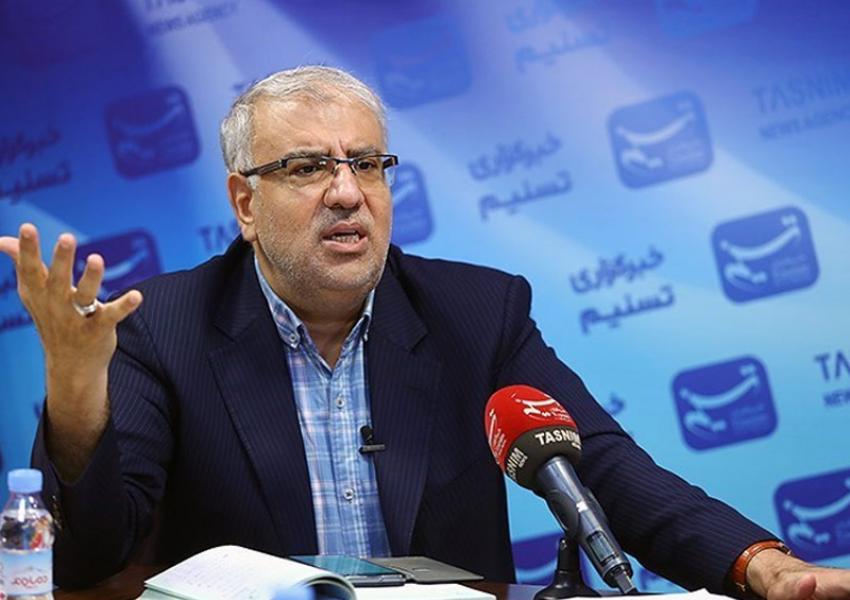
Owji’s immediate predecessor, Bijan Zanganeh, was a veteran of the Oil Ministry. He was the longest-serving oil minister in the history of the Islamic Republic—with a tenure that spanned two presidencies. Therefore, Owji will have big shoes to fill. In Owji’s selection as oil minister, the influence of Raisi’s first vice president, Mohammad Mokhber, can be seen given his tenure at Setad subsidiaries as Mokhber was a longtime head of Setad. Owji is also sanctioned by the United States under Executive Order 13876. The U.S. Treasury Department sanctioned him for being a member of the board of directors or a senior executive officer of Sina Energy Development Company, which is an energy holding of the Mostazafan Foundation. It’s Executive Order 13876 which Tehran is pushing the Biden administration to rescind. Owji, who doesn’t have the same baggage as Zanganeh since he is not a Specially Designated Global Terrorist (SDGT), will nonetheless inherit a ministry which itself has been designated as an SDGT by the United States. If the United States resumes participation in the nuclear deal, it is likely this designation will be lifted.


